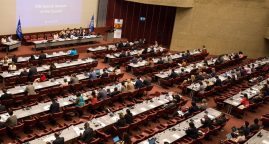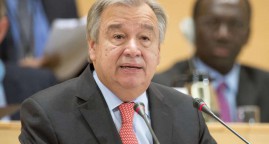We must harness the true strength of migration
The view of Special Representative of the UN Secretary General for Migration.
Abstracts
Migration is one of the morally, politically, and economically defining issues of the 21st century. Some 25,000 souls have died trying to cross the Mediterranean since 2000, including over more than 1,500 so far in 2015, and many thousands more have perished in the Gulf of Aden and in the South Pacific.
The immigration debate will never be an easy one, but it can become less tendentious and more deliberative if its participants consider the facts. This is equally relevant in the international realm as well, and specifically in the context of the post-2015 UN development agenda. This is, in fact, is a once-in-a-generation moment. Two decades ago, the membership of the International Organisation for Migration consisted of just a few dozen countries. It now stands at over 150.
Migration—when it takes place in a safe, orderly, and responsible way—contributes powerfully to countries of origin and destination, and above all to the families of migrants. Migration deserves to be a prominent part of the post-2015 agenda. We have overwhelming evidence that smart policy interventions can help us protect the rights of migrants, suppress the activities of bad actors, and draw out the economic, social, and human benefits of migration.
-> Read the article on the oecd website
-> See Peter Sutherland’s speech on migration delivered at the OECD in December 2014
Related Articles
IOM Member States Endorse Move to Join United Nations
07/01/2016. Member States of the International Organization decided that IOM should join the United Nations system as a related organization.
Guterres says UNHCR and partners struggle to meet humanitarian needs
10/05/2015. The global refugee crisis is so great that the UN refugee agency and other agencies are struggling to respond to and meet all the humanitarian needs they face.
Global forced displacement hits record high
06/20/2016. UNHCR Global Trends report finds 65.3 million people, or one person in 113, were displaced from their homes by conflict and persecution in 2015.






